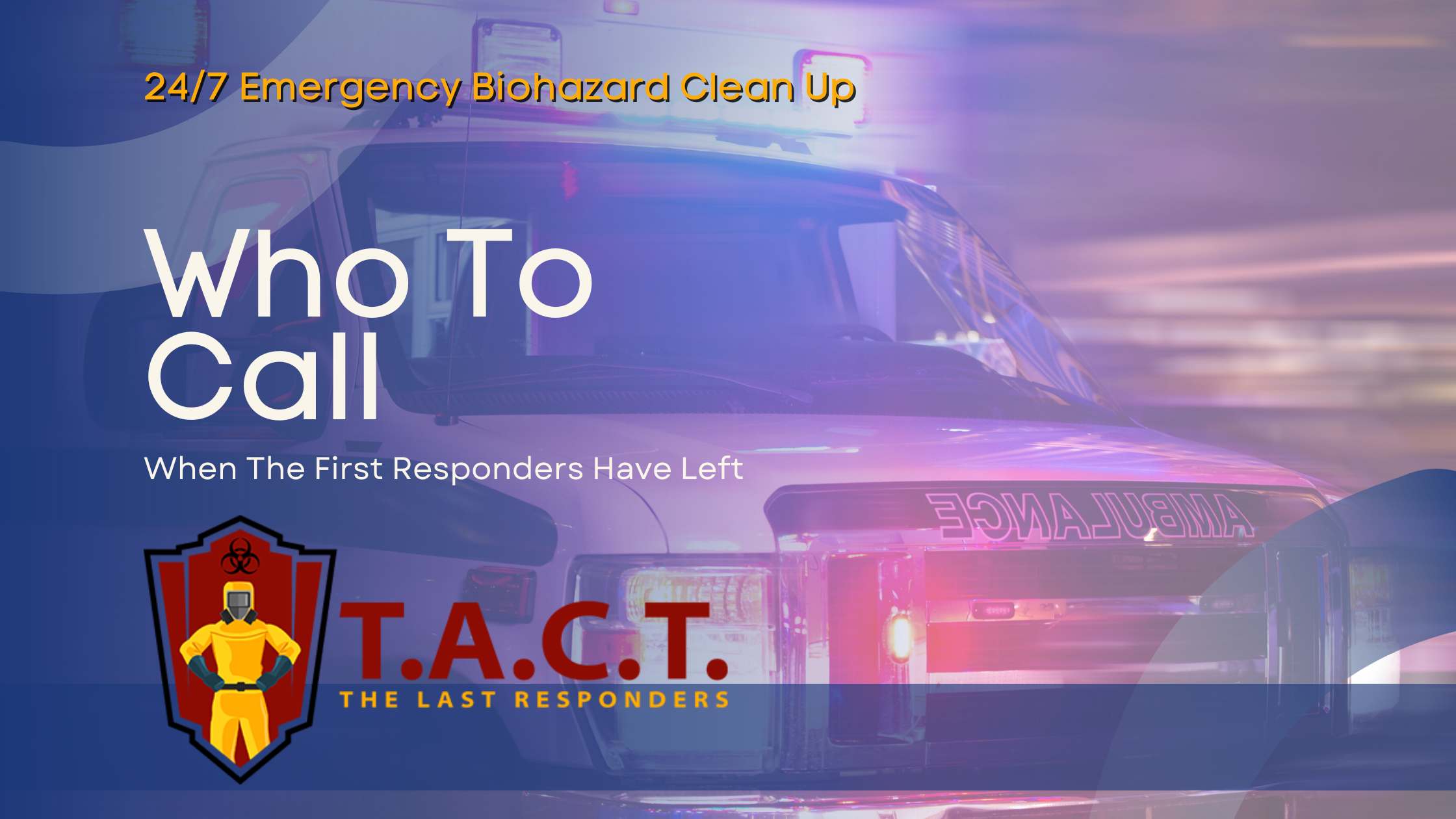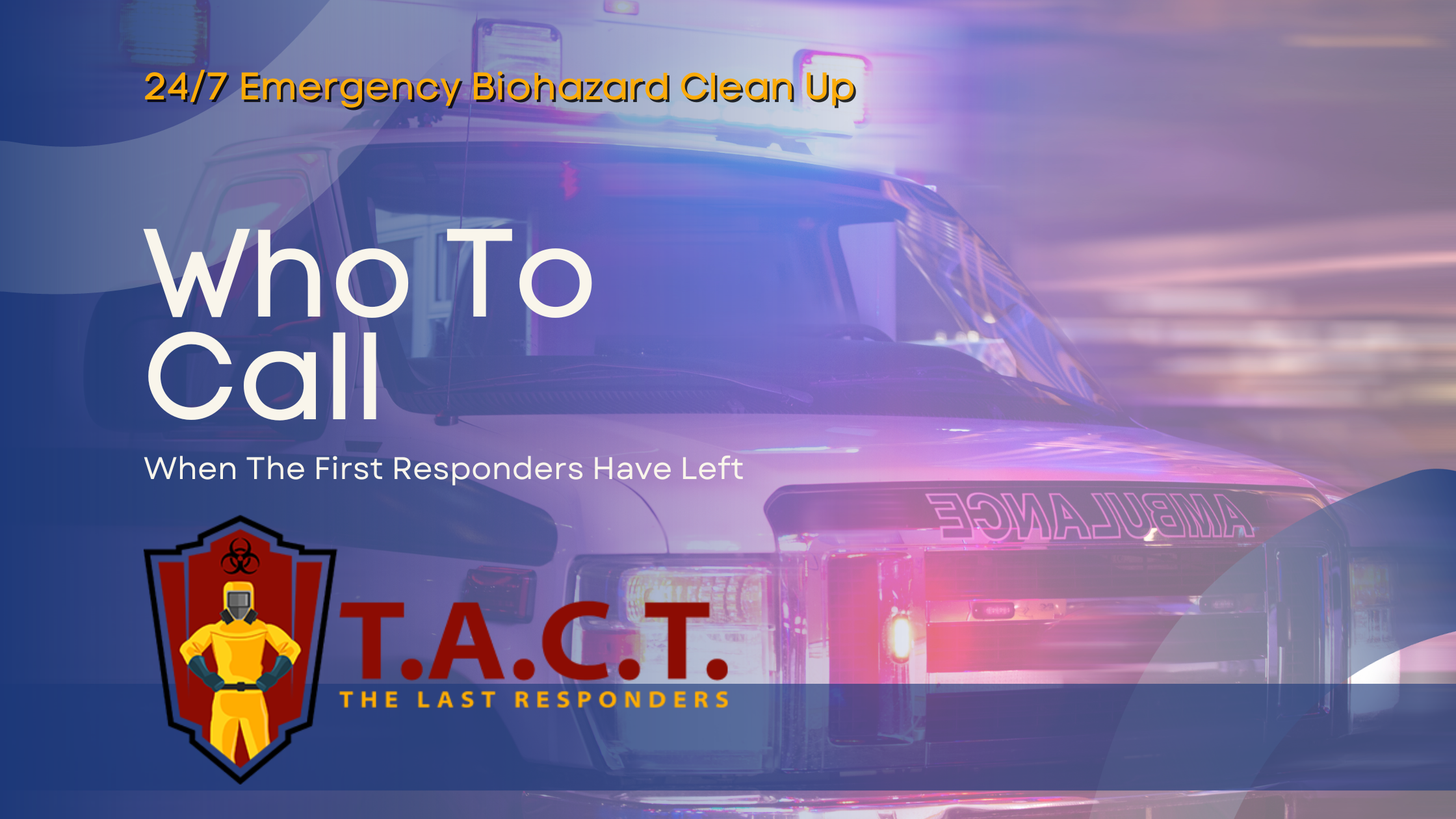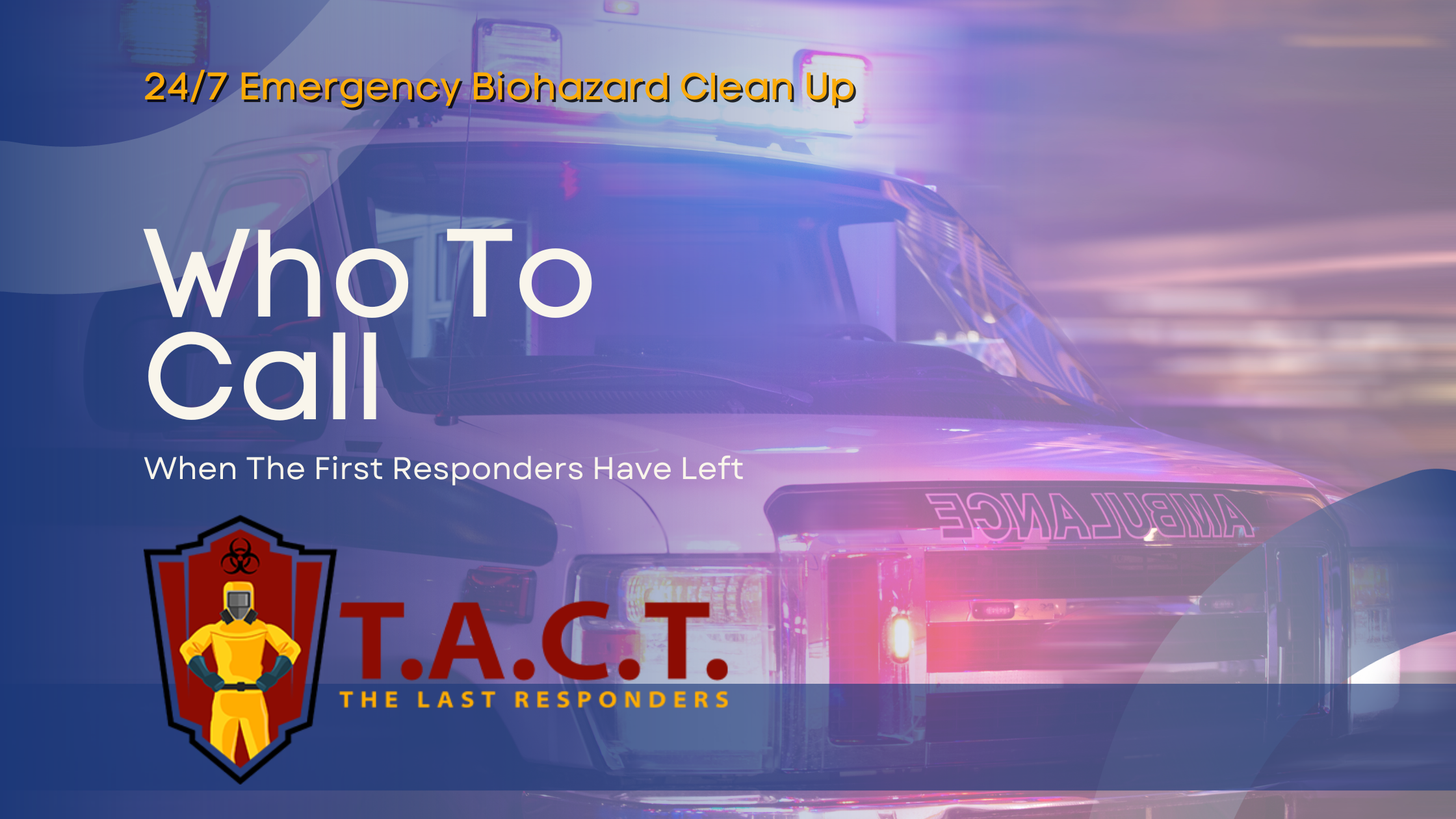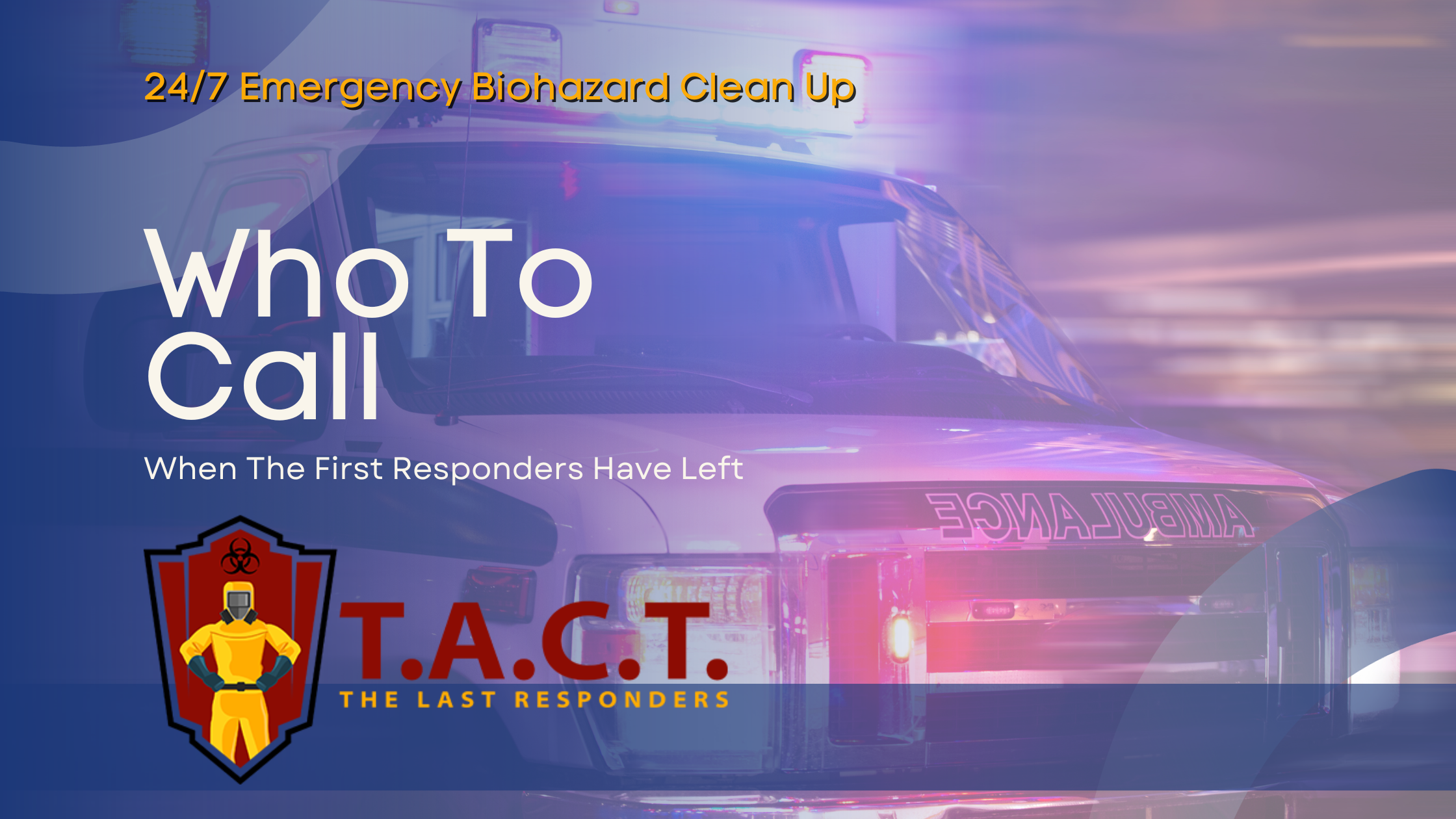Biohazard cleanup pay

Biohazard Cleanup Pay
Understanding Biohazard Cleanup Pay: Factors and Salary Insights
For those considering a career in biohazard cleanup or seeking salary information, understanding biohazard cleanup pay is essential due to the unique risks and requirements of the job. Biohazard cleanup pay reflects the specialized nature of this work, which involves exposure to hazardous materials, strict safety protocols, and often emotionally challenging environments. This article will cover salary ranges, pay factors, and earning potential for biohazard cleanup professionals, helping you make informed decisions about entering or advancing in this field.
Biohazard cleanup involves the removal, decontamination, and restoration of areas affected by hazardous biological materials in homes, businesses, and public spaces. Professionals in this industry are responsible for ensuring that contaminated environments are made safe for future use, often after traumatic or dangerous incidents.
There are several factors that influence pay, such as job type, geographic location, and advanced certifications. In this article, we’ll break down what you can expect to earn, the key factors that affect pay, and general compensation details in the biohazard cleanup industry.
Biohazard cleanup professionals work in a variety of environments, including accident scenes, trauma scenes, and public spaces. Incidents can happen at any time, requiring immediate response and flexibility from cleanup teams.
We’ll also discuss how earning potential can be significantly increased with advanced certifications.
Key Takeaways
Biohazard cleanup professionals play a critical role in public health and safety, responding to hazardous situations such as crime scenes, unattended deaths, and chemical spills.
Pay for biohazard cleanup workers is influenced by job complexity, risk levels, and certification requirements, leading to a wide salary range from entry-level positions to experienced roles earning over $100,000 annually.
Most crime scene cleaners earn between $55,000 and $63,500 annually.
Career advancement in biohazard cleanup is facilitated by ongoing training and certification, with opportunities to move into supervisory roles that command higher pay and increased responsibilities.
Holding advanced certifications like OSHA HAZWOPER and Bloodborne Pathogens significantly boosts earning potential for biohazard cleanup professionals.
Overview of Biohazard Cleanup Jobs
Biohazard cleanup jobs require specific training and strict safety protocols. The work of crime scene cleaners is difficult and can be highly specialized, requiring professionals to follow strict procedures to protect themselves and others from exposure to hazardous materials. Biohazard cleanup jobs involve handling hazardous materials and require specific training and safety protocols.
Biohazard cleanup experts are essential for preserving public health and safety, especially in areas with high population density. They respond to a variety of circumstances that involve hazardous substances requiring expert attention.
Common environments and scenarios where biohazard cleaning services are needed include:
Crime scenes
Accident scenes
Unattended deaths
Chemical spills
Sewage backups
Hoarding scenarios
Public spaces
Biohazard remediation technicians may also be called upon to clean up after suicides, homicides, hoarding cleanup, and other traumatic events. Each scenario poses distinct physical and emotional challenges for the personnel responsible for restoring order.
The procedure for professional biohazard cleanup is thorough, involving several crucial actions:
Conduct an in-depth evaluation of the area to assess contamination levels and determine the necessary level of biohazard precautions.
Dispose of any biohazard materials and biohazardous materials present.
Execute comprehensive sanitization and disinfection protocols to eradicate all remnants associated with the hazard.
Specialized cleaning agents are used throughout these steps, and strict protocols are followed to protect both workers and the public. Biohazard removal is a specialized process performed by biohazard cleanup companies, requiring adherence to occupational safety standards. Following established processes is critical to avoid mistakes that could endanger health or safety.
These measures guarantee that post-cleanup, the space can be safely reused without posing health threats.
Equipped with appropriate training on managing dangerous substances effectively, professionals who specialize in biohazards don personal protective gear such as hazmat suits alongside specialized equipment designed specifically for safe biohazard cleaning services. Given their engagement with emotionally difficult events like unobserved deaths or violent crimes, their commitment to re-establishing safe environments proves vital within society’s infrastructure while dealing with potentially harmful biological material.
With an understanding of the environments and challenges, let's examine the factors that influence pay in this field.
Factors Influencing Biohazard Cleanup Pay
Several key factors influence biohazard cleanup pay, shaping the overall compensation structure for professionals in this field. These include:
Job complexity
Risk level
Certification requirements
Geographic location
Business ownership (working for a company vs. owning a business)
The compensation for biohazard cleanup professionals is impacted by these factors, each playing a distinct role in shaping their overall pay structure.
Pay and costs in biohazard cleanup vary depending on the size of the affected areas, the type of business involved, and whether the cleaner operates their own business. The size of the affected areas also plays a major role in determining the cleaning cost. This explains why costs linked to biohazard cleanup tasks can fluctuate widely and varies based on circumstances ranging from relatively simple scenarios like sewage backups to more complex situations such as crime scene cleanup cost that might entail handling blood and dealing with criminal activities.
As the level of biological safety required for a cleanup increases, so does the need for more comprehensive safety protocols, which subsequently leads to higher remuneration rates. Ensuring that these professionals possess proper certifications also influences their earning capacity since it confirms they have received adequate training and are equipped to adhere rigorously to safety standards.
Job Complexity
The level of complexity in biohazard cleanup jobs can vary widely, influencing both the length and expense involved. For example, cleaning up a crime scene, accident scenes, or trauma scenes entails not only the physical elimination of hazardous substances, but also managing the emotional stress associated with high-risk and frequently distressing environments.
These roles encompass more than mere cleaning. They necessitate comprehensive knowledge about various biohazards as well as strict adherence to safety protocols for handling and disposing of such materials.
Specific types of cleanup tasks present distinct challenges. Cleanups after hoarding incidents may need to deal with decomposing garbage, pet excrement, or spoiled food products—each requiring particular methods for safe removal and disposal.
The time required for cleanups can range broadly: clearing an area where death occurred without timely discovery might take a handful of hours, while decontaminating areas affected by drug production could take upwards to five days due to complex pollutants present there. Each additional hour dedicated to completing these duties adds to the total cost—which is contingent on numerous factors at play—and underscores why hiring a professional company proficient in this arena is crucial.
Executing these intricate cleanings calls upon specific know-how and capabilities from technicians trained in employing sophisticated apparatuses and specialized cleaning agents designed precisely for removing biohazards efficiently while ensuring thorough site sanitation afterward. Following strict protocols is essential to protect both workers and the environment. The comprehensive processes involved in biohazard cleanup include assessment, containment, removal, disinfection, and proper waste disposal. Any mistake during these procedures can have serious consequences, such as exposure to harmful pathogens or improper decontamination.
Such skills rationalize higher service fees—as reflected in increased hourly wages along with elevated overall compensation levels within this field.
Risk Level
The level of risk involved in bioremediation and biohazard cleanup work, especially when it concerns bloodborne pathogens, is a crucial determinant of compensation. Occupational safety is paramount in this field, requiring strict adherence to safety protocols and the use of personal protective equipment (PPE) to protect workers from hazardous materials and contamination. These measures are essential to safeguard not only the cleanup professionals but also property owners and the environment.
The CDC delineates biohazard safety levels on a scale from one to four. The first level signifies minimal hazard while the fourth level denotes extreme danger. Dealing with life-threatening illnesses like Ebola and Marburg at Biosafety Level 4 mandates exhaustive safety protocols including full-body protective suits.
Workers dealing with high-level biohazards are able to secure markedly better wages due to increased peril and the need for greater protective measures. Higher salaries are often associated with jobs that require more advanced PPE and strict safety procedures because of the elevated risk. Cleanup tasks carried out at Biosafety Level 4 can command an hourly rate ranging between $150 and $600, mirroring both the gravity of potential risks and the specialized expertise necessary for handling such critical conditions.
Similarly, even jobs performed under biosafety level three offer substantial remuneration, with pay typically extending from about $50 to $150 per hour—a clear reflection of how job-associated hazards proportionally influence earnings.
Certification Requirements
Acquiring crime scene cleanup training and certification is essential for those pursuing a career in biohazard cleanup, as it provides assurance that workers are equipped with the necessary knowledge to manage hazardous materials responsibly and adhere to health and safety guidelines. Mandatory training includes OSHA Bloodborne Pathogens Certification, which is a legal requirement for all biohazard cleanup professionals. Advanced certifications from recognized industry organizations can significantly increase a cleaner's earning potential, allowing professionals to command higher salaries and demonstrate expertise in specialized or high-demand areas.
Obtaining appropriate certifications can result in improved employment opportunities and increased earnings. Firms tend to favor candidates who have undergone thorough training and show proficiency in biohazard remediation tasks. This adherence not only guarantees proper execution of cleanup work, but also contributes to upholding superior industry standards.
With a clear understanding of the factors that influence pay, let's explore the actual salary ranges and earning potential in the biohazard cleanup industry.
Average Salary of Biohazard Cleanup Professionals
Hourly Pay and Annual Salary Ranges
The typical earnings for professionals specializing in a career in biohazard cleanup can differ greatly, influenced by factors such as their expertise, the region they work in, and the intricacies of each crime scene they address. According to labor statistics, the median annual wage for hazardous materials removal workers, which includes crime scene cleaners, is $43,900. Biohazard cleanup professionals in the U.S. earn an average of $33,933 to over $40,000 per year, with salaries ranging from $19,000 to over $54,000 depending on experience and location. These professionals often charge an hourly rate, typically between $75 and $250 per hour. Those new to the field of biohazard cleanup often see annual salaries that span from $30,000 to $50,000. With experience and focused skills within this area, there’s a possibility for salary increases.
Summary of Biohazard Cleanup Pay
Entry-level hourly pay: $15–$16/hr
Average hourly pay: $16–$21/hr
Annual salary range: $19,000–$54,000
Most earn: $55,000–$63,500 annually
Experienced specialists: Over $100,000 per year
High-level jobs: Up to $600/hr
Below is a summary table of typical hourly and annual pay ranges for biohazard cleanup professionals:
Experience Level | Hourly Pay Range | Annual Salary Range |
|---|---|---|
Entry-Level | $15 - $16/hr | $19,000 - $31,390 |
Average | $16 - $21/hr | $33,933 - $54,000 |
Most Earn | $26 - $30/hr | $55,000 - $63,500 |
Experienced Specialist | $25+/hr | $80,000 - $100,000+ |
High-Level Jobs | $50 - $600/hr | $100,000+ (varies) |
Entry-level biohazard cleanup positions typically start around $15 to $16 per hour, with annual salaries from $19,000 to $31,390.
The average pay in early 2026 is approximately $16 to $21 per hour, with annual salaries from $33,933 to $54,000.
Most crime scene cleaners earn between $55,000 and $63,500 annually.
Experienced specialists can earn over $100,000 per year.
High-level biohazard cleanup jobs, especially those involving high risk, can pay $50 to $600 per hour.
These figures underscore not only the profitability but also the essential nature of these specialized cleaning services due to consistent demand.
Salary by Experience Level
Entry-Level Positions
Positions at the entry-level in biohazard cleanup serve as a gateway for individuals who are newcomers to this sector. These jobs provide an hourly compensation between $12 and $20, which is modest but indicative of the early phase of a potentially lucrative career trajectory that can develop with more experience and training.
Despite the relatively lower initial remuneration, these roles offer essential practical experience and instruction. Workers gain first-hand knowledge of fundamental aspects such as correct application of personal protective gear, management of hazardous materials, and adherence to mandatory safety procedures. This core understanding is vital for professional growth within the field and acquiring positions later on that come with better pay.
Experienced Professionals
Professionals skilled in biohazard cleanup can receive significant monetary compensation for their expertise. Those with a wealth of experience may see annual earnings exceed $100,000, demonstrating the premium placed on seasoned skills and knowledge.
Such experienced individuals take on jobs that are more complex and carry greater risks, necessitating the use of specialized equipment and deep understanding. Successfully managing these difficult assignments not only boosts their potential income, but also strengthens job security and opens up paths for career growth.
This advancement underscores the critical role that accruing experience and enhancing abilities play within the realm of biohazard cleanup.
Geographic Variations
The location significantly impacts the remuneration of biohazard cleanup professionals. In major urban regions such as San Francisco and New York, where living expenses are steeper, their salaries can surpass the national average by 20-30%. This adjustment is to ensure that these workers receive fair compensation in relation to the increased costs they face.
The necessity for biohazard cleanup services fluctuates based on how often events like homicides and unattended deaths occur. As a result, places with elevated crime rates or higher instances of hazardous occurrences tend to offer more generous pay scales due to an escalated demand for these services.
For those considering a career in this field, it's important to be aware of how geographic disparities may influence job prospects and potential earnings within the profession of biohazard cleanup.
With a clear picture of salary ranges and earning potential, let's look at the additional compensation and benefits that can further enhance total pay in this field.
Additional Compensation and Benefits
Professionals specializing in biohazard cleanup frequently enjoy a range of supplementary financial incentives that augment their standard salary, elevating the total remuneration they receive. Companies routinely furnish these workers with healthcare benefits such as medical, dental, and vision insurance to support employees who are consistently in contact with potential health risks.
Comprehensive compensation packages within this field usually include retirement savings options like 401(k) contributions matched by employers. To recognize the laborious aspects of their duties and to provide additional financial assistance, companies often dispense bonuses and extra earnings for jobs that are especially arduous or require extended work hours.
Understanding the full compensation package is important, but it's also crucial to recognize the unique challenges and rewards of working in biohazard cleanup.
Challenges and Rewards of Biohazard Cleanup Work
The task of biohazard cleanup is a test of both emotional and physical fortitude. Professionals in this field frequently deal with the aftermath of traumatic events such as crime scenes or situations involving unattended deaths, which can have profound psychological effects.
The job's physically strenuous nature involves maneuvering through filthy conditions fraught with hazardous elements like bodily fluids. Despite these formidable challenges, there are substantial rewards associated with biohazard cleanup efforts.
Those involved play an essential role in reinstating cleanliness and security within impacted zones, greatly enhancing community health and confidence. Their diligent work guarantees the meticulous extraction of dangerous substances, averting potential public health threats. For individuals seeking meaningful contributions to aiding others during times when they are most vulnerable, this profession offers a deep sense of fulfillment.
After understanding the challenges and rewards, let's explore the career advancement opportunities available in this field.
Career Advancement Opportunities
Biohazard cleanup experts have various opportunities for career growth. Initially, one may begin their journey in the field as a Biohazard Cleanup Technician and eventually advance to higher positions like Remediation Supervisor. In this capacity, they are responsible for managing the cleanup activities while making sure that safety protocols are strictly followed.
These supervisory roles not only bring greater responsibilities, but also come with increased remuneration, and can even be a stepping stone toward starting your own crime scene cleanup franchise. For those interested in entrepreneurship, starting a crime scene cleanup business or owning your own business in biohazard remediation can significantly boost your earning potential, as business owners often have the opportunity to scale operations and increase profits within this industry.
To climb up the career ladder within biohazard cleanup and related forensic cleaning services, ongoing education and acquiring certifications is essential. Training initiatives typically concentrate on imparting hands-on skills necessary to address the practical difficulties encountered during biohazard cleanups effectively.
As these professionals accumulate experience and secure additional qualifications, they become increasingly indispensable to their employers. This enhances their prospects of securing more lucrative employment offers along with elevated salary brackets.
With career advancement in mind, it's also important to consider the role of transparent pay practices in this industry.
Importance of Transparent Pay Practices
Transparent pay practices are crucial in the biohazard cleanup industry. Openly shared and understood compensation builds trust, improving morale and retention. Transparency also helps mitigate misunderstandings and resentment among employees, fostering a healthier work environment.
Transparent pay practices ensure workers receive fair compensation corresponding to their skills and hazards. This attracts talent and reinforces the industry's reputation as a responsible paid employer.
Adopting transparent pay practices promotes fairness and trust, benefiting both employees and employers.
Understanding the importance of transparency, let's review the steps to become a biohazard cleanup professional.
How to Become a Biohazard Cleanup Professional
Pursuing a career as a biohazard cleanup professional involves comprehensive training and obtaining the necessary certification. Mandatory training includes OSHA Bloodborne Pathogens Certification, which is a legal requirement for all biohazard cleanup professionals. Additionally, advanced certifications from recognized industry organizations can increase earning potential and demonstrate a higher level of expertise, especially in specialized or high-demand areas.
Individuals interested in this field need to be trained in the safe management of hazardous materials, with a strong emphasis on occupational safety and strict adherence to health and safety standards. Such preparation equips them adequately to handle the complexities associated with their role.
To improve proficiency and adherence to safety measures, ongoing education is crucial for biohazard cleanup professionals. They must keep abreast of new methods and advancements within their field, ensuring they continue performing at an exemplary level. A dedication to continual learning not only boosts their skill set, but also presents pathways for progression within their careers.
With the path to entering the field clear, let's summarize the key points about biohazard cleanup pay and career outlook.
Summary
It is crucial for individuals contemplating a career in biohazard cleanup to grasp that several factors impact earnings within this profession. The level of complexity and potential hazards associated with different jobs, along with the criticality of obtaining certification, are key factors influencing wage determination.
Earning potential is greatly enhanced by advanced certifications, as these credentials from recognized industry organizations can help professionals command higher salaries and demonstrate expertise in specialized or high-demand areas. There exists a broad spectrum regarding salaries for those skilled in biohazard cleanup, with veterans in the field typically earning substantially more.
Supplementary benefits such as health coverage and pension schemes contribute positively to enhancing an employee’s total compensation package. In spite of any hurdles encountered on the job, careers in biohazard cleanup offer notable rewards including financial security and personal satisfaction from meaningful work. Transparent remuneration policies coupled with continuous education are essential to professional growth and upholding excellence within this sector.
Frequently Asked Questions
What are the typical duties of a biohazard cleanup professional?
Biohazard cleanup professionals are responsible for removing hazardous materials, performing biohazard removal, sanitizing affected areas, and ensuring safety for future use. Their work often involves dealing with crime scenes, accident scenes, trauma scenes, unattended deaths, chemical spills, hoarding situations, and public spaces.
How much can entry-level biohazard cleanup workers expect to earn?
Entry-level biohazard cleanup workers can expect to earn between $12 and $20 an hour, which translates to an annual salary of approximately $30,000 to $50,000.
What factors influence the pay of biohazard cleanup professionals?
Compensation for biohazard cleanup professionals is influenced by several factors, including the complexity and risk associated with each job, the certifications required, and the type of employment. Pay can vary depending on the severity of the cleanup, the type of contamination, location, and the professional's experience. Additionally, compensation often varies based on whether the work is performed for a private company, as an independent contractor, or through a government agency, as well as the specific insurance policies involved.
Are there additional benefits for biohazard cleanup professionals beyond their salary?
Professionals in the field of biohazard cleanup frequently receive more than just their wages. They also get healthcare benefits, retirement packages, and extra bonuses for taking on difficult tasks.
Such supplementary incentives boost their total remuneration package as well as satisfaction with their work.
How does geographic location affect the salaries of biohazard cleanup professionals?
Geographic location greatly influences biohazard cleanup salaries, with metropolitan areas like San Francisco, New York, or Atlanta biohazard cleanup markets offering higher pay due to increased living costs and demand for services.
Ultimately, professionals in more urbanized regions can expect better compensation.



